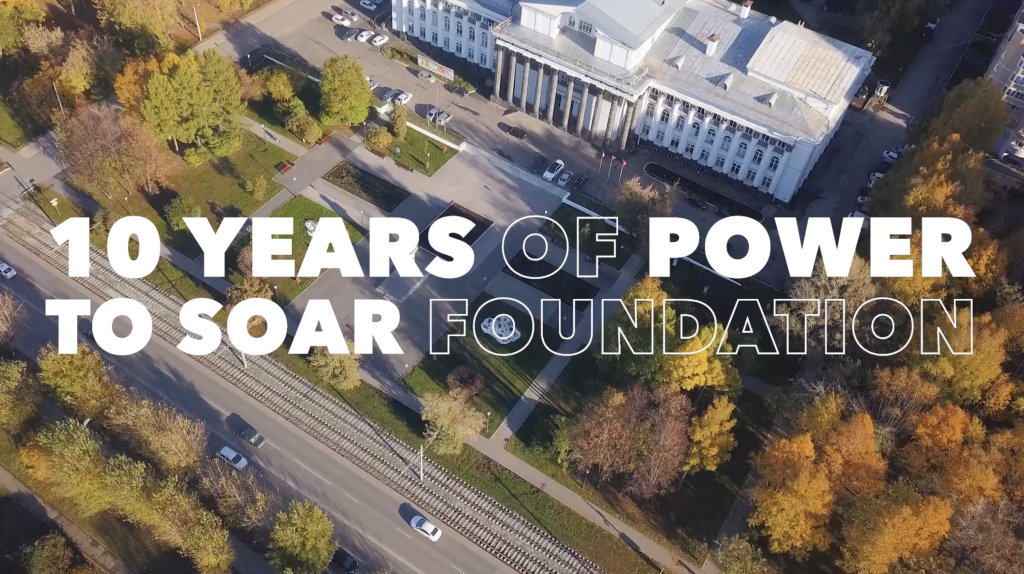Fostering babies is a unique and specialized form of foster care that requires dedication, experience, and a deep understanding of a child’s needs. With approximately 7% of children in foster care being under one year old, the demand for skilled foster parents for newborns and infants is significant. Babies often enter foster care during transitional periods, such as bridging to adoption, and their care demands extra attention and expertise.
This article explores the essentials of fostering babies, from understanding the responsibilities involved to preparing for the challenges. Readers will gain insights into the skills required, the competition for placements, and tips to increase their chances of fostering an infant. Whether you’re an experienced foster parent or considering this path for the first time, this guide will help you navigate the rewarding yet demanding journey of caring for the youngest members of the foster system.
Key Takeaways
- Fostering babies is a specialized form of foster care that provides support for newborns and infants during transitional periods, such as bridging to adoption.
- Caring for infants in foster care requires round-the-clock attention, adaptability, and understanding of their unique developmental and emotional needs, including any medical or trauma-related challenges.
- Competitive placements for infants often favor experienced foster parents, but flexibility, training, and strong collaboration with agencies can enhance chances of approval.
- Building a robust support network of agencies, foster groups, and trusted caregivers is essential for managing the demands of foster care.
- While fostering babies presents challenges like sleep deprivation and emotional hurdles, it is deeply rewarding, offering opportunities to create stability, provide love, and make a life-changing impact.
Table of Contents
What Is Fostering Babies?
Fostering babies, often referred to as infant foster care, involves providing care for newborns or infants who are temporarily unable to stay with their birth families. It serves as a crucial support system during times of transition, such as when babies are placed in bridging care before adoption. These placements require foster parents to meet the specific developmental, emotional, and sometimes medical needs of very young children.
Infants in foster care, around 7% of the total foster population, are predominantly under one year old, as noted by the Adoption and Foster Care Analysis and Reporting System (AFCARS). Foster parents play a vital role in offering stability and nurturing in this critical stage of growth. While fostering babies is rewarding, it demands significant commitment and specialized skills. Experienced foster parents, especially those familiar with this age range, are often chosen to ensure the child’s needs are met.

The process of fostering babies comes with unique challenges. Infants require round-the-clock care, including feeding, diapering, and soothing. Some babies may also arrive with medical or developmental considerations, needing extra attention or coordination with healthcare professionals. Prospective foster parents must be prepared for these responsibilities and adaptable to the physical and emotional demands of infant care.
Many foster babies are part of sibling groups, increasing the chance of placement for those open to fostering siblings. Foster-to-adopt care is another common pathway, allowing families to bond with infants while reducing their number of placements. But, because placements for infants are competitive, flexibility in age range or openness to other fostering types may improve a foster parent’s chances.
Foster parents are encouraged to build a strong support system for guidance and encouragement. Whether it’s through local foster groups, online communities, or collaboration with child-placing agencies, having trusted connections can ease the journey. Fostering a baby may also require buy-in from family or partners, so discussing the commitment together is critical.
By engaging with fostering agencies, prospective parents can learn more about requirements, training, and placement options. With careful consideration and preparation, fostering babies can transform lives—not just for the infants but also for the families that welcome them.
Why Do Babies Need Foster Care?
Babies enter foster care when their biological families cannot provide the care and safety they require. Situations leading to this include medical conditions experienced by a parent or significant difficulties within the family, such as neglect or inability to meet basic needs. In some cases, the care system intervenes to safeguard a newborn’s physical or emotional well-being.
Temporary fostering is often necessary during transitional periods. For example, newborns waiting for adoption may require placement in a nurturing environment. This type of care, known as bridging foster care, ensures that infants receive stability and affection while long-term solutions are being established.
Another common reason involves the parent’s challenges in caring for multiple children. Families facing overwhelming situations might require temporary support while addressing their circumstances. Even under these conditions, biological parents often remain in contact with their child. Foster parents may help this connection by providing transportation for visitations or sharing updates, fostering a sense of continuity for the child.
In rare but critical instances, a newborn’s medical or developmental needs demand specialized attention. Experienced foster parents with advanced training become vital in such placements. These caregivers provide the focused care needed to support both immediate health concerns and longer-term developmental milestones.
Every baby in foster care represents a unique situation. Their vulnerability and dependence on adults make this an especially critical stage for intervention. Foster parents serve as a lifeline, offering stability, love, and support during times of immense uncertainty for these infants.
Preparing To Foster a Baby
Fostering a baby is a transformative experience that requires dedication and preparation. Prospective foster parents must focus on creating a safe, nurturing environment, while meeting key requirements set by foster care agencies.
Meeting Eligibility Requirements
Eligibility requirements ensure that foster parents are well-suited to care for infants. These include age criteria, typically 21 or older, and stable financial status. Agencies may assess marital or relationship status to confirm a dependable support network. Individuals are expected to showcase the emotional and physical ability to manage the rigors of caring for a newborn.
Experience with infants is often preferred, though not mandatory. If inexperienced, individuals can compensate through training programs and support from experienced caregivers. Agencies look for flexibility, as fostering might involve urgent placements or caring for infants with medical or developmental needs. Foster parents must also demonstrate the ability to work collaboratively with biological parents and agency personnel.
Completing the Application and Training
The path to fostering begins with submitting an application that provides detailed personal and household information. Applicants share their motivations for fostering and address expected challenges. This documentation enables agencies to match foster parents with appropriate placements.
Training plays a central role. These preparatory sessions, usually mandated by state foster care systems, educate caregivers on infant needs, attachment development, trauma-informed care, and emergency response strategies. Participants learn methods for soothing newborns, recognizing developmental milestones, and managing sleep deprivation. Experienced trainers offer insights into bridging care, facilitating smoother transitions for infants awaiting adoption.
Home Study and Background Check
A comprehensive home study ensures the prospective foster family can provide a secure, loving home. This process involves interviews, safety inspections, and discussions about caregiving philosophies. Agencies assess living spaces for hazards and validate that the home environment fosters emotional stability.
Background checks review criminal history and child welfare records. These screenings confirm that foster parents prioritize child safety. Medical evaluations verify physical and mental health, ensuring caregivers can handle the demanding nature of infant care. The home study typically spans three to four months, giving families time to prepare for the responsibilities ahead.
Prospective foster parents who successfully meet these criteria become certified, opening the door to one of the most impactful roles in the foster care system.
Tips for Successfully Fostering Babies
Fostering babies is a rewarding yet demanding journey that requires compassion, preparation, and adaptability. Prospective foster parents can increase their chances of success by focusing on four key areas: understanding newborn needs, building a support network, adjusting their lifestyle, and managing finances and resources effectively.
Understanding and Meeting Newborn Needs
Newborns require round-the-clock attention, making understanding their developmental and emotional needs critical. Routine tasks like feeding, changing diapers, and soothing cries are essential aspects of care. Babies also thrive when they feel secure, so foster parents should focus on nurturing attachment through consistent responses and physical affection.
Plus to basic care, babies might have unique needs based on their circumstances. Premature infants or those exposed to substances in utero may require medical attention, while those experiencing trauma benefit from extra comfort. Foster parents equipped with specialized training, such as infant CPR or trauma-informed care, are better prepared to meet these challenges.
Building a Support Network
Caring for an infant, especially in a foster care setting, becomes more manageable with a solid support system. Collaborating closely with child-placing agencies provides foster parents with valuable guidance and resources. They can also join local foster parent groups or online communities to connect with others facing similar challenges.
Trusted family and friends can play an essential role, offering emotional support or stepping in during emergencies. Establishing a network of babysitters familiar with infant care ensures someone is always available when help is needed. Being part of a foster parenting group also fosters understanding and camaraderie, which can make the experience less overwhelming.
Adjusting Your Lifestyle
Foster parents often make lifestyle adjustments to ensure they can meet the demands of caring for a baby. They might reorganize work schedules to spend more time at home or create a predictable environment by setting daily routines. Preparing a safe, baby-friendly space involves securing furniture, removing hazards, and gathering essential items like cribs and infant seats.
Social outings and travel plans may need to shift, as newborn care often requires flexibility and prioritization. For those fostering infants with medical needs, managing therapy or doctor visits could become part of their routine. Parents can also prepare by purchasing clothes in multiple sizes, as infants grow rapidly and often unpredictably.
Managing Finances and Resources
Raising a baby incurs ongoing costs, from diapers and formula to clothing and healthcare. Foster parents can lessen the financial burden by utilizing state-provided stipends, which typically cover basic child-rearing expenses. Purchasing in bulk or opting for gender-neutral baby gear ensures long-term use for future placements.
Budgeting for additional needs, like medical equipment or specialized training, can improve readiness for unexpected situations. Many agencies offer financial support for specific requirements, helping foster families navigate the monetary challenges of infant care. Embracing simplicity and focusing on essentials is often the most practical approach.
Challenges and Rewards of Fostering Babies
Fostering babies brings immense joys, but it’s also accompanied by significant challenges. The delicate responsibility of caring for newborns demands round-the-clock attention and unwavering patience, which can sometimes feel overwhelming for even the most experienced foster parents.
Adapting to constant demands
Babies require frequent feedings, diaper changes, and soothing day and night. The sleep disruptions this causes can lead to physical exhaustion, especially if foster parents are also managing work or other responsibilities. Added to this, infants often communicate their needs through crying, which might take time to interpret.
Meeting unique developmental needs
Infants in foster care may arrive with developmental delays, prenatal exposure to substances, or unaddressed medical conditions. These circumstances necessitate specialized care, requiring foster parents to work closely with pediatricians and therapists. Understanding and supporting milestones like motor skills, cognitive development, and attachment is an ongoing task.
Navigating emotional hurdles
Although fostering infants creates deep emotional bonds, it can also bring heartache. Foster parents often enter with the knowledge that reunification with the birth family or adoption by another family might occur. Balancing love for the child with the understanding of their temporary placement involves emotional resilience.
Even though these challenges, the rewards of fostering babies are profound. The opportunity to play a pivotal role during a child’s earliest stages of life is deeply fulfilling. Watching a foster baby grow, thrive, and reach milestones because of your care can create a strong sense of purpose.
Providing love and stability
Caring foster environments can provide infants with stability during a tumultuous time in their lives. The nurturing given by foster parents often lays the foundation for secure attachment, supporting the baby’s emotional health as they develop.
Building meaningful connections
Fostering might not just benefit babies—it can strengthen family dynamics for foster parents as well. Children in the home often learn compassion, responsibility, and inclusivity through firsthand experiences with the foster baby. Many foster families report that these connections leave a lasting impact on all family members.
Life-changing relationships
In some cases, fostering opens the door to creating lifelong bonds. Whether it’s through fostering-to-adopt or staying in touch as mentors after reunification, many foster parents find these relationships to be among the most meaningful experiences of their lives.
Fostering babies can be both demanding and worthwhile. While the path isn’t easy, the difference it makes in a child’s life—and in yours—can be extraordinary. By embracing the challenges alongside the rewards, foster parents can create a positive and lasting impact.






